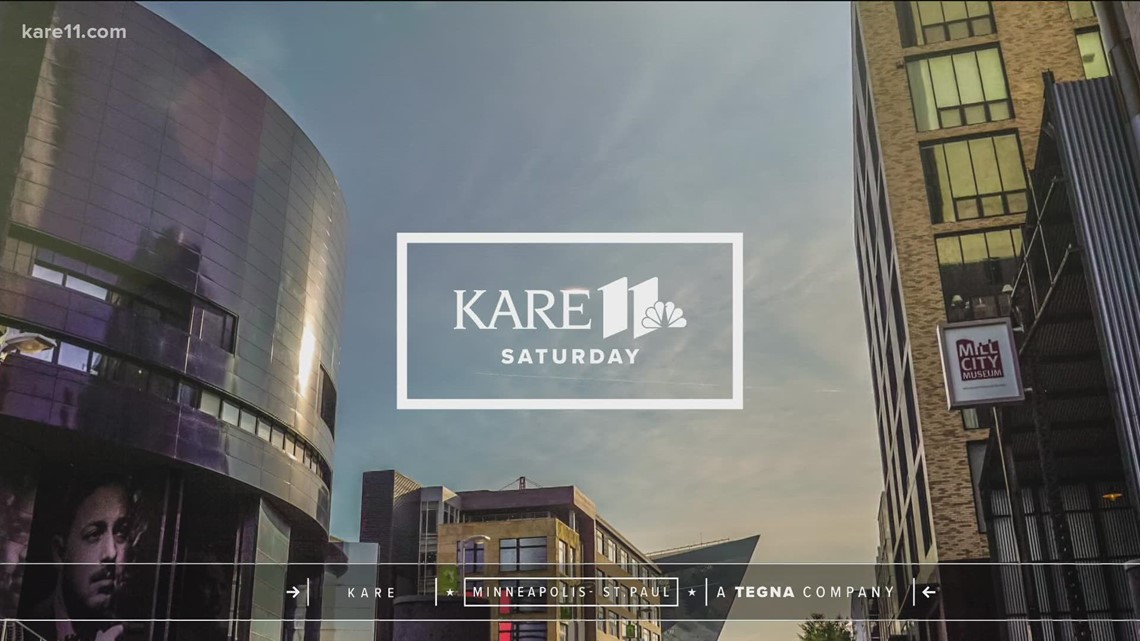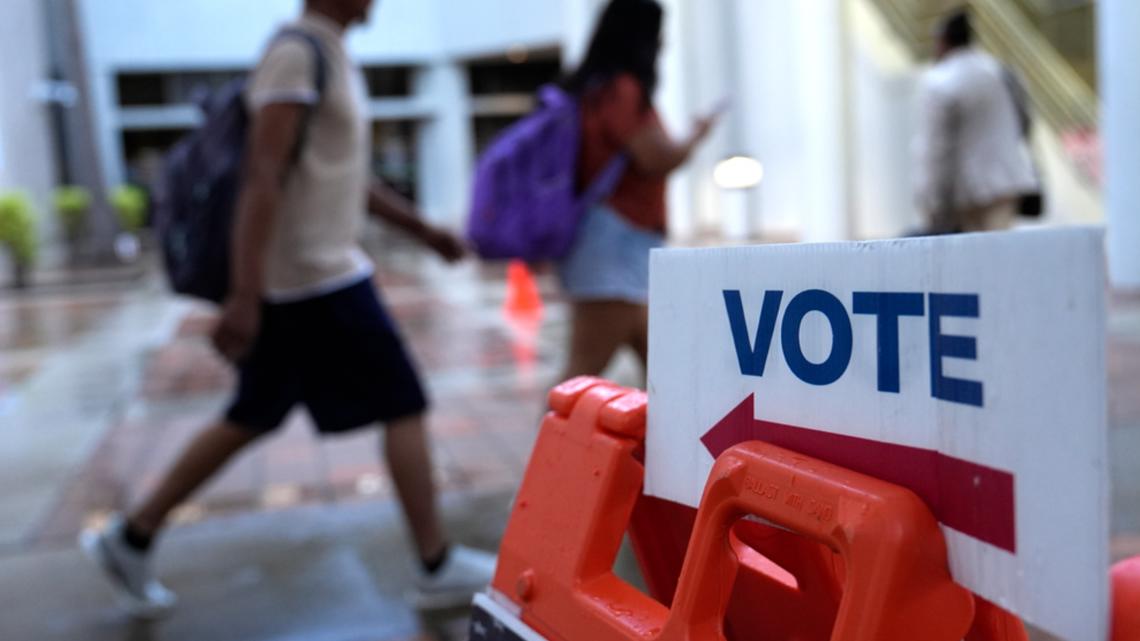Kare11
Want to own a piece of Minnesota women’s soccer?


Three years ago, 3,080 people invested in the idea of an independent Minnesota women’s soccer and the team is offering more investors a chance to join.
EAGAN, Minn. — Minnesota Aurora, the largest independent community-owned women’s soccer team in the U.S., has announced a new round of selling community shares of the team. The club’s unique community ownership model currently has 3,080 owners and this new round will allow people that missed out in 2021 to join ownership.
“We have accomplished more than we ever thought possible in our first three seasons with the initial $1 million,” said Aurora Board Chair and Co-Founder Allie Schmidt in a news release. “This new round will allow us to keep growing and giving back to our players, fans and community.”
Community ownership shares are $50 each, with a minimum investment of $100 offering exclusive perks for investors. The community owners elect two representatives to the Board of Directors ensuring that the owners’ voices are represented.
“We are excited to welcome even more people to our community-owned team. This is the land of 10k lakes? How about the land of 10k owners?” added co-founder Andrea Yoch, in the release. ” Minnesota Aurora wants to become the biggest community-owned club in the country. Together we will create even more opportunities for women in sports on and off the field.”
Money from the new round of investors will help fund Aurora’s year-round team operations, including player housing and camp scholarships, waiving try-out fees if needed, paying U.S. Soccer registration fees as well as game day expenses and continuing to build out the front office.
Founded in 2021, Minnesota Aurora was built by a group of local Minnesotans with the mission of bringing community-driven soccer to the Twin Cities. The club includes Aurora, a pre-professional team playing in the USL-W team, Aurora 2 playing in the UPSL and summer camps for girls. Aurora has been undefeated in the regular season for over three years and has won the Heartland Division all three seasons. Aurora 2 went undefeated in their first season making it to the UPSL playoffs. The team’s home field is TCO Stadium in Eagan at Viking Lakes.
Kare11
Search continues for Bemidji missing person


Jeremy Jourdain was 17 when he was last seen on Halloween 2016.
BEMIDJI, Minn. — The search for Jeremy Jourdain, who was last seen on Halloween in 2016, continues now eight years later.
Jourdain was last seen at a family member’s house in Bemidji, according to the U.S. Department of the Interior Indian Affairs. He left the residence near the 500 block of Wood Avenue after midnight and while people followed him, no one was able to find him.
Jourdain was 17 at the time.
Officials said he was wearing a blue and grey sweatshirt, and blue jeans when last seen. He is Native American and is described as 6 foot 5 and 175 pounds.
If you have any information on his whereabouts, you can contact the Bemidji Police Department at (218) 333-9111. Tips can also be sent to 1-833-560-2065, or you can email ojs_mmu@bia.gov.
Kare11
Asian-American voter turnout projected to rise despite barriers


The organizations say many Asian Americans are planning to vote despite lack of candidate outreach.
ST PAUL, Minn. — Most people have been contacted in some way shape or form by a campaign in the last few weeks. And if the polls are right and the race for president is a dead heat, every vote will matter.
That’s why this is a head scratcher:
According to a September 2024 voter survey by Asian American Pacific Islander Data, 27% of Asian-American voters said they hadn’t been contacted by either political party trying to get their vote. Last spring, earlier in the voting season, it was even more – 42%.
Asian Americans and Pacific Islanders are the fastest growing racial or ethnic group nationwide.
Their voter participation levels are growing too, with 60% of eligible Asian-American voters turning out in 2020. And AAPI Data reports as many as 90% of Asian Americans they surveyed said they plan to vote this cycle.
“Candidates are not reaching out to Asian Americans, which is a huge mistake,” said ThaoMee Xiong, executive and networking director of the Coalition of Asian American Leaders.
She says even though there are more than 200,000 eligible Asian voters in Minnesota, the Asian vote is under-appreciated.
“Neither the Democratic or Republican parties have been reaching out in huge numbers,” Xiong said. “They’re sending general mailers to everyone but … they need it in their native language.”
That’s why CAAL is partnering with two more organizations to keep voter turnout high and reach anyone candidates or advocates missed.
Xor Xiong is from Asian American Organizing Project, which focuses on engaging metro-area teens and young adults.
“Many of our communities are still facing barriers to go to vote,” he said. “There’s been more times than I like to admit in terms of when I was having a conversation over the phones of voters being surprised that they can take time off to go and vote, or they can bring the kids to the polling locations, or they can even bring someone to translate for them.”
“In Ramsey County, because of the large Hmong American population there, the polls in Ramsey County are federally required to provide interpreters and translated materials,” ThaoMee added.
Their nonpartisan campaign, Get Out the Vote for Asian Minnesotans, aims to get people registered and well-informed.
“Throughout Covid, there was a lot of anti-hate around the AAPI community and we are still feeling the impact of that to this day,” said Amanda Xiong, a community organizer with a group known as CAPI USA. “Even if folks are afraid to go to the polls, due to that, we try our best to then educate them around absentee ballots, voting early.”
“And so yes, there is a huge increase in terms of voter turnout, but then why is it still 70% feel as though they don’t belong?”
In 2021, the FBI reported a 168% increase in anti-Asian hate crimes.
In Brooklyn Park and Brooklyn Center, the groups knocked on at least 700 doors in one session alone while keeping safety top of mind.
“We make sure that there’s a car following all the door knockers,” ThaoMee said. “We put everyone on text chain … and we are putting a lot of precautionary measures in place for the day of voting.”
After the election, the CAAL plans to conduct surveys and send the results to county election officials. They’ve done this before and say it led to policy changes this year at the legislature including measures to ensure people have easier access to interpreters.
Kare11
MN groups work to get Latino voters to the polls


Minnesota groups work to encourage Latino voters to get to the polls and dispel misinformation.
MINNESOTA, USA — While the secretary of state publishes polling information in the Spanish Language, experts say there are still challenges when it comes to activating Latino voters. Minnesota groups have been hard at work getting voting information out and challenging misinformation.
Communities Organizing Latine Power and Action (COPAL) says it is still working to inspire Latino voters to the polls days before the election.
Eva Peña is one of the volunteers who spent part of Wednesday at their headquarters on Lake Street, calling Latino voters and making sure questions are answered in either English or Spanish.
“I’ve been able to help people figure out if they’re registered or not to vote,” smiled Peña. “And that part has felt super fulfilling for me.”
About 6% of Minnesota’s population is Latino and COPAL’s organizing director Ryan Perez says language isn’t the only barrier. Fear is a hurdle, too.
“There’s some common myths that folks are still facing,” said Perez. “They think, is it unsafe for me to vote? If I vote, will that put my relative in jeopardy?”
Perez says a myth has spread on social media that if you exercise your right to vote as a citizen, it could put undocumented loved ones at risk of deportation.
The secretary of state’s office reaffirmed Wednesday that all eligible Minnesotans should vote without fear of repercussions.
“As much as we think social media seems deregulated and there’s a lot of false information for English speakers, it’s even more so for non-English speakers,” said Perez.
Annastacia Belladonna-Carrera is the Executive director of Common Cause Minnesota. Her organization runs an election protection program and has volunteers flagging misinformation on social media as part of its efforts.
“If I’m your cousin, or I’m the small business owner where you frequent with your family, and you see me reposting something, you’re gonna be more likely than not to believe that because it’s coming from me, right?” she pointed out.
Belladonna-Carrera says there’s an additional challenge in reaching voters with accurate information in rural areas as well.
“It’s that isolation,” Belladonna-Carrera said. “It’s not just geographic isolation, it’s linguistic isolation.”
But volunteers say it’s not just about showing up, but showing leaders that they need the Latino vote.
“They’ll be thinking about, well, how can I make the how can I make life better for our Latino community?” said Peña.
For more resources in Spanish on how to vote, go to the Secretary of State’s website.


